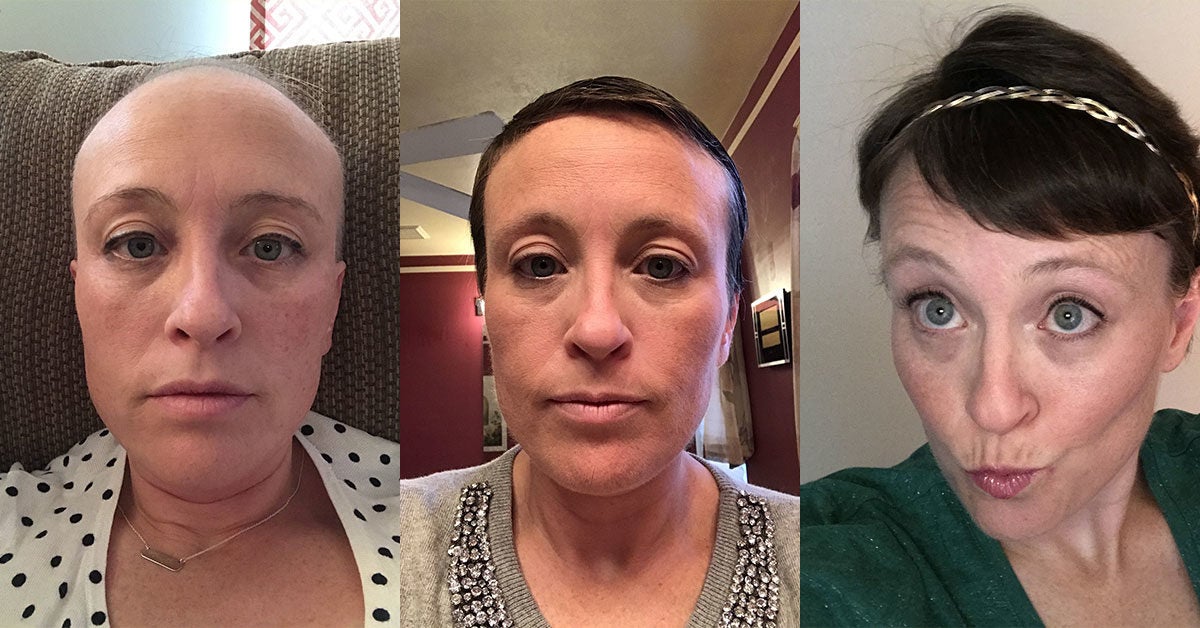Cancer is a disease that can cause many different symptoms, depending on where the cancer is in the body. One symptom that is common with many types of cancer is hair loss. This can happen because cancer cells use up a lot of energy, which means that the body has less energy available to keep hair follicles healthy and growing.
Additionally, some treatments for cancer, such as chemotherapy and radiation therapy, can also damage hair follicles and lead to hair loss.
Hair Loss and Breast Cancer Treatment – Causes, Alternatives, and Solutions
Hair loss is a common side effect of cancer and its treatments. While it’s not necessarily the first thing you think of when you hear the word “cancer,” it’s an important topic to discuss. There are many different types of cancer, and not all of them cause hair loss.
However, many common treatments for cancer, such as chemotherapy and radiation therapy, can result in hair loss.
If you or a loved one has been diagnosed with cancer, it’s important to be aware of the possibility of hair loss. Talk to your doctor about what to expect and how to manage hair loss during treatment.
There are also options available to help deal with the cosmetic effects of hair loss, such as wigs and head coverings. Remember that hair loss is just one small part of the journey – focus on staying healthy and positive throughout treatment!
What Type of Cancer Causes Hair Loss
Cancer is a disease that can cause many different symptoms, including hair loss. There are many different types of cancer, and each type can cause a different type of hair loss. The most common type of cancer that causes hair loss is leukemia.
Leukemia is a cancer of the blood cells. It usually affects children, but it can also affect adults. Other types of cancer that can cause hair loss include lymphoma, brain tumors, and ovarian cancer.
Hair loss from cancer can be partial or complete. It can happen quickly or slowly. Some people lose all of their hair, while others just lose some of it.
Cancer treatment often makes hair fall out as well. Chemotherapy and radiation therapy can both cause hair loss. Hair usually starts falling out 2-3 weeks after starting treatment and grows back within 6-12 months after treatment ends.
If you or someone you know has cancer and is experiencing hair loss, there are many options available to help cope with this symptom. Wigs, hats, and scarves are all great ways to cover up bald spots or thinning hair. There are also products available to help make the scalp more comfortable during chemotherapy or radiation therapy treatments.

Credit: www.healthline.com
Can You Have Cancer And Not Lose Hair?
It is possible to have cancer and not lose hair. This is most likely to occur with cancers of the blood, such as leukemia or lymphoma. Other types of cancer can also cause hair loss, but this is less common.
Cancer treatment, such as chemotherapy or radiation therapy, can also cause hair loss.
Which Type of Cancer Causes Hair Loss?
There are many types of cancer that can cause hair loss, but the most common type is chemotherapy. Chemotherapy targets rapidly dividing cells in the body, which unfortunately includes hair follicles. While hair loss from chemotherapy is almost always temporary, it can be a very distressing side effect for patients undergoing treatment.
Other types of cancer that can cause hair loss include certain leukemias and lymphomas. These cancers affect the blood cells, which similarly to chemotherapy, target rapidly dividing cells including hair follicles. Radiation therapy can also cause hair loss by damaging the DNA of healthy cells including hair follicles.
Hair loss from cancer treatments is often unpredictable and can vary greatly from person to person. Some people may lose all of their hair while others may only lose patches or thinning throughout treatment. There are ways to help manage this side effect, such as cold caps or scalp cooling devices that can help reduce the amount ofhair lost during chemotherapy sessions.
If you or a loved one are experiencing hair loss due to cancer treatment, talk to your doctor about ways to manage this side effect.
Conclusion
Hair loss is a common side effect of cancer and its treatments. While not all types of cancer will cause hair loss, it is a common symptom of many types of the disease. If you are experiencing hair loss as a result of cancer, there are a few things you can do to manage the condition.
First, talk to your doctor about any concerns you have. They may be able to recommend products or treatments that can help. Additionally, try to keep your scalp healthy by using gentle products and avoiding excessive heat or chemicals.
Finally, consider wearing a wig or head covering if your hair loss is extensive or causes you significant distress.
